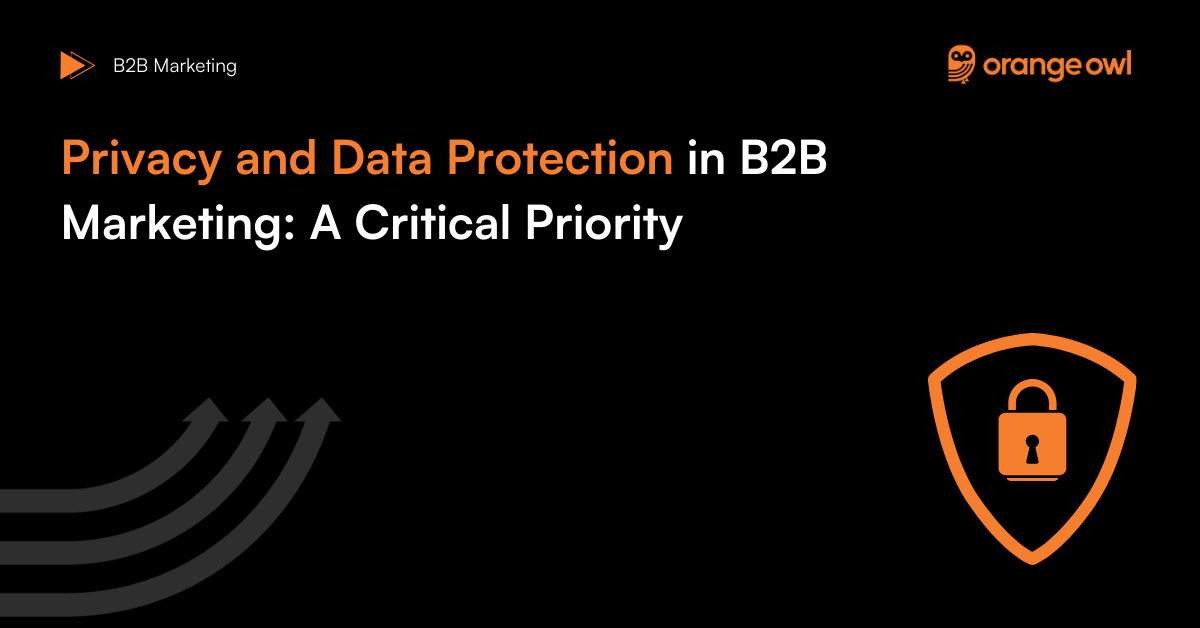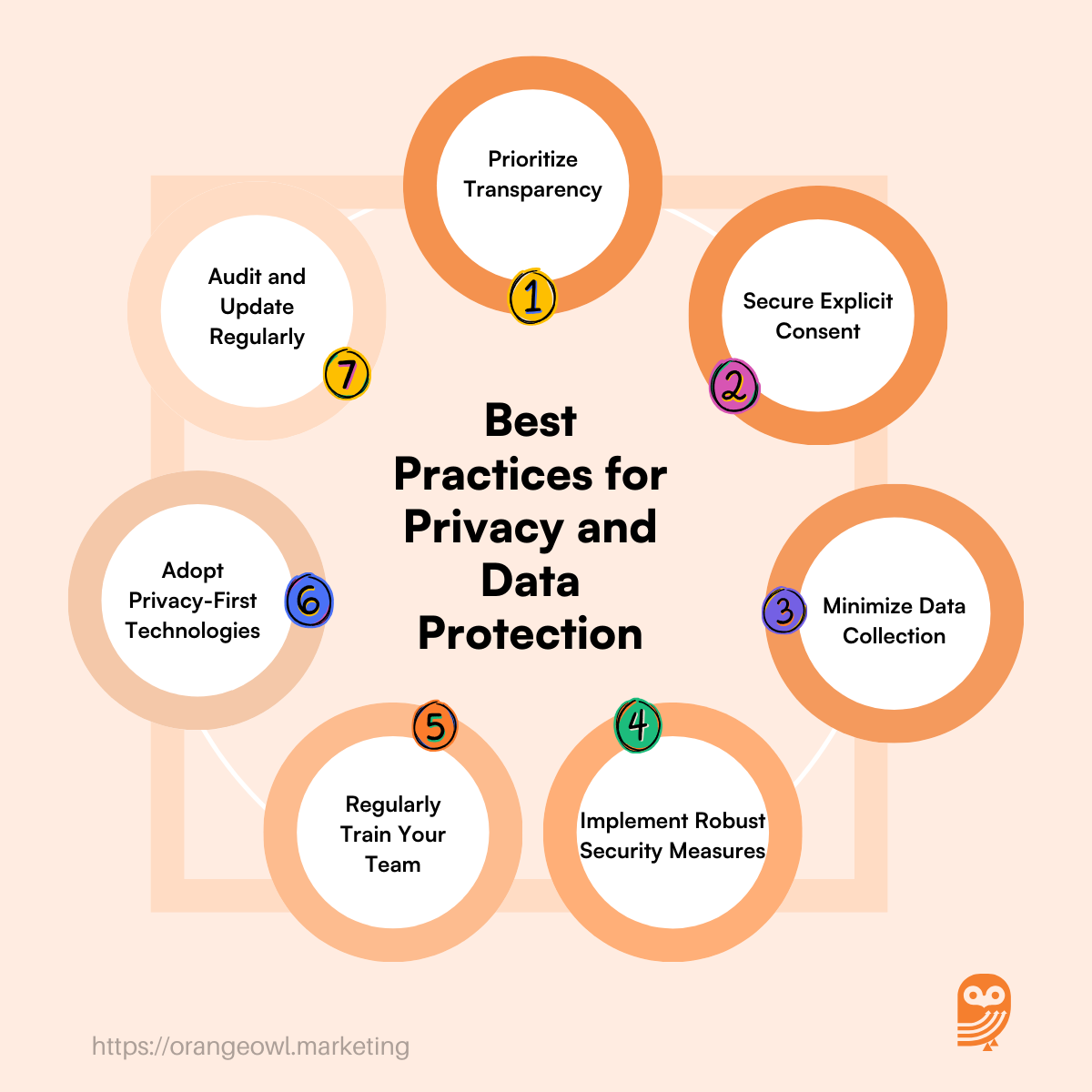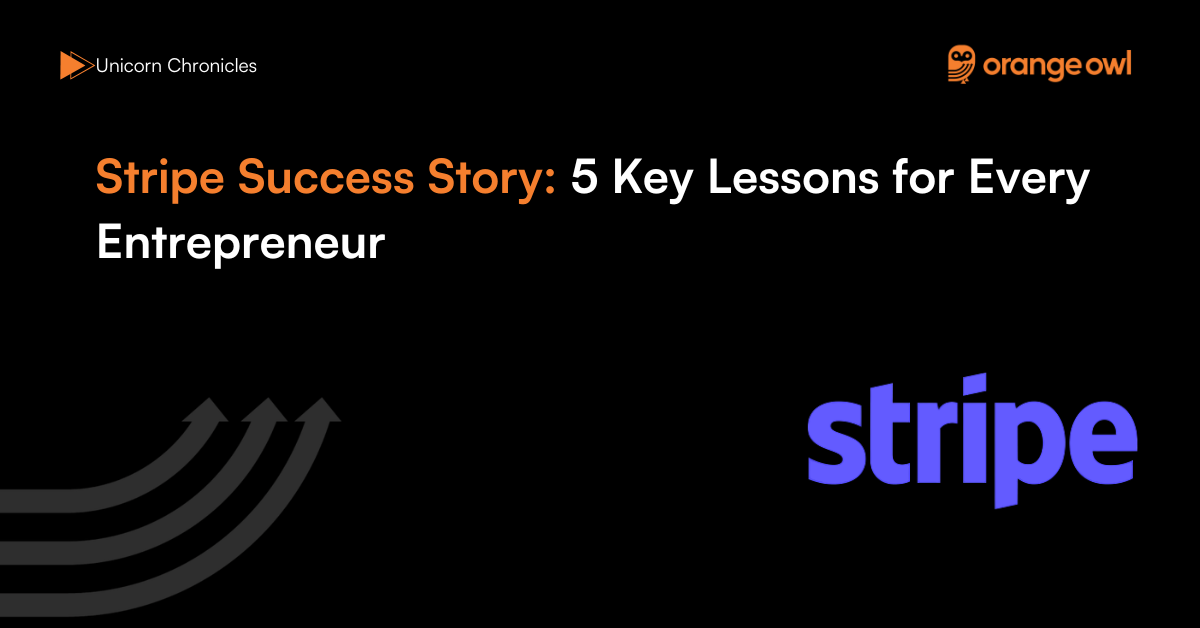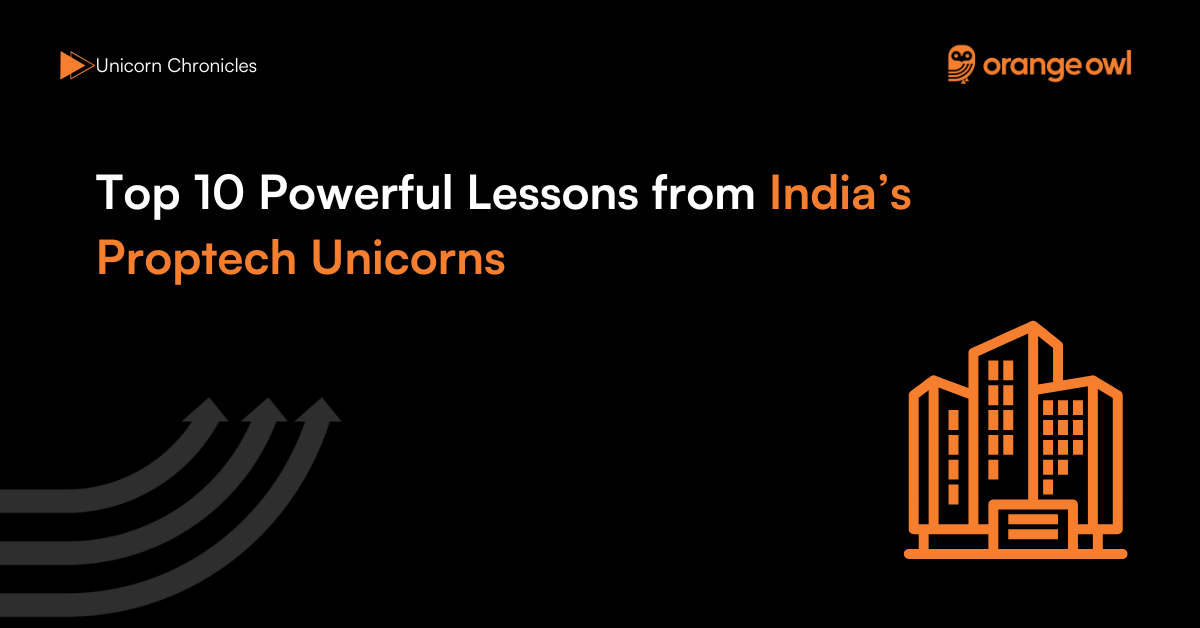Privacy and Data Protection in B2B Marketing: A Critical Priority
Vivek Goel
December 24, 2024

Table of Contents
Introduction
In the fast-evolving digital landscape, B2B marketing has undergone a transformative shift. With advanced technologies enabling precise targeting and personalized communication, businesses now handle vast amounts of sensitive data. While these advancements open new opportunities, they also bring significant challenges, particularly in ensuring privacy and data protection.
What is Privacy and Data Protection
Privacy refers to the right of individuals to control their personal information and determine how it is collected, used, shared, and stored. It is rooted in the principle that everyone has the right to safeguard their personal and professional data from misuse or unauthorized access. In today’s digital age, privacy extends to online behaviours, communication patterns, and sensitive information, such as financial details and personal preferences. Upholding privacy is critical for fostering trust and ensuring that individuals and organizations feel secure sharing their information.
Data protection, on the other hand, focuses on the policies, practices, and technologies designed to secure sensitive information from breaches, theft, or loss. It encompasses measures like encryption, access controls, and compliance with regulations such as GDPR (General Data Protection Regulation) and CCPA (California Consumer Privacy Act). Effective data protection ensures that businesses not only comply with legal standards but also protect their reputation and relationships by maintaining the integrity and confidentiality of the data they manage. Together, privacy and data protection form the foundation for ethical and secure handling of information in an increasingly interconnected world.
Why Privacy and Data Protection Matters in B2B Marketing
Unlike B2C, where individual consumers are the focus, B2B marketing involves companies, which might suggest less sensitivity to personal data. However, this is a misconception. B2B transactions involve decision-makers, employees, and stakeholders whose personal and professional data must be handled with care. A breach of trust can lead to reputational damage, legal penalties, and the loss of valuable business relationships.
“B2B organizations need to view privacy as a core aspect of their brand integrity. The moment data breaches happen, trust is broken, and that affects not just the organization itself but its relationships with partners and clients.”
– Sundar Pichai, CEO of Google
B2B marketers handle critical data like company contact information, decision-making behavior, financial information, and more. A data breach in these contexts can have far-reaching consequences, leading to reputational damage, legal penalties, and the loss of key business relationships.
“In B2B, the stakes are higher when it comes to data privacy. Companies depend on the personal data of decision-makers and stakeholders. Failing to protect this data can erode trust and result in lost business opportunities.”
-Marc Benioff, CEO of Salesforce
Key Regulations Governing Privacy and Data Protection
B2B marketers must navigate an increasingly complex regulatory environment. Some of the key frameworks include:
General Data Protection Regulation (GDPR)
Applicable to companies operating in or targeting the European Union, GDPR mandates strict guidelines for collecting, storing, and processing personal data.
Key Provisions:
- Consent: Marketers must obtain explicit and informed consent from individuals before collecting or processing personal data.
- Right to Access and Erasure: Individuals have the right to access their data and request its deletion (the “right to be forgotten”).
- Data Minimization: Organizations are required to collect only the data necessary for specific purposes.
- Heavy Penalties: Non-compliance can lead to fines of up to €20 million or 4% of global turnover, whichever is higher.
Impact on B2B Marketing:
B2B marketers must ensure that their lead-generation efforts, email campaigns, and CRM systems comply with GDPR guidelines. This includes maintaining transparent privacy policies, creating robust consent mechanisms, and securing data storage.
California Consumer Privacy Act (CCPA)
Though primarily focused on B2C, CCPA applies to B2B interactions where personal data is involved, especially for Californian residents.
Key Provisions:
- Opt-Out Rights: Individuals can opt out of the sale or sharing of their personal data.
- Data Disclosure: Companies must disclose what personal data they collect and for what purposes.
- Limited Scope of B2B Exemptions: While some exemptions exist for B2B transactions, the CCPA still applies to employee, contractor, and other professional data in certain contexts.
Impact on B2B Marketing:
For businesses engaging with California-based clients or stakeholders, compliance means developing processes to honour opt-out requests, providing clear privacy notices, and ensuring vendor relationships align with CCPA requirements.
Data Protection Acts (DPA)
Various countries have implemented their own versions of DPAs, addressing local concerns and cultural sensitivities around privacy.
Notable examples include:
- India’s Digital Personal Data Protection Act: Focused on transparency, accountability, and user rights in data collection and usage.
- Australia’s Privacy Act: Mandates strict guidelines on the handling of personal information.
- Canada’s Personal Information Protection and Electronic Documents Act (PIPEDA): Governs data collection, use, and disclosure in the private sector.
Key Provisions:
- Varying definitions of “personal data” and differing compliance requirements make international marketing campaigns more complex.
- Specific obligations for data localization and cross-border data transfers.
Impact on B2B Marketing:
B2B marketers must stay informed about the specific requirements of each region they operate in. Adopting a flexible, privacy-by-design approach helps ensure compliance across a diverse regulatory landscape.
Failure to comply with these regulations can result in hefty fines and loss of credibility.
Best Practices for Privacy and Data Protection
To thrive in this regulatory landscape, B2B marketers should adopt the following best practices for privacy and data protection:
Best Practice 1: Prioritize Transparency
Be upfront about how data is collected, used, and stored. Ensure your privacy policies are easy to understand and readily available on your website or communication materials.
Example: A B2B SaaS company collecting data on potential clients might disclose its data practices through a clear and concise privacy policy outlining how the data is collected, stored, and used for marketing purposes. For instance, a company like Salesforce has a detailed privacy policy available on its website, informing users about how data is processed for product recommendations and customer support.
Tips:
- Ensure your privacy policies are easy to understand and accessible via your website and all communication channels.
- Offer transparency about data usage to build trust with clients and stakeholders
Best Practice 2: Secure Explicit Consent
Gone are the days of implicit consent. Use clear opt-in mechanisms to obtain permission for data collection and ensure stakeholders can easily withdraw consent.
Example: A B2B company using email marketing for lead generation might require explicit opt-in consent from prospects before sending marketing materials. For instance, HubSpot offers sign-up forms with clear opt-in checkboxes, ensuring that users understand how their data will be used before they receive communications.
Tips:
- Use clear opt-in mechanisms such as checkboxes for explicit consent.
- Provide options to withdraw consent easily to comply with evolving regulations like GDPR.
Best Practice 3: Minimize Data Collection
Collect only the data that is strictly necessary for your marketing efforts. Over-collecting not only increases risks but also signals inefficiency in your processes.
Example: A logistics company collecting data about customer shipping needs should only collect the information necessary—like company name, contact details, and shipment requirements—rather than gathering excessive data on unrelated topics. A company like UPS ensures they collect only essential customer information to optimize service while minimizing unnecessary data storage.
Tips:
- Avoid collecting unnecessary data that increases compliance risks.
- Regularly review what data is required and what is not, reducing the amount of sensitive information collected.
Best Practice 4: Implement Robust Security Measures
Invest in advanced cybersecurity tools to protect sensitive data from breaches. Encrypt data, use firewalls and conduct regular vulnerability assessments to ensure compliance.
Example: A B2B software company handling sensitive customer data should deploy advanced cybersecurity measures like encryption and firewalls and conduct vulnerability assessments. Slack, for example, uses strong encryption methods to protect user data, ensuring that customer communications and information remain secure.
Tips:
- Invest in encryption and secure access controls for storing sensitive data.
- Conduct regular vulnerability assessments and security audits to identify and mitigate risks.
Best Practice 5: Regularly Train Your Team
Equip your marketing and sales teams with knowledge about privacy laws and ethical data practices. Regular workshops and updates can help mitigate accidental breaches and increase privacy and data protection.
Example: A B2B sales team using CRM systems like Salesforce should be regularly trained on data privacy laws and best practices. A company like Google provides privacy training sessions to ensure employees understand GDPR and CCPA compliance, reducing the risk of accidental breaches.
Tips:
- Conduct regular workshops and training sessions to keep your teams updated on data privacy laws.
- Encourage continuous learning about evolving data protection practices.
Best Practice 6: Adopt Privacy-First Technologies
Choose marketing platforms and CRMs that prioritize privacy and data protection. Many tools now offer out-of-the-box GDPR or CCPA compliance features.
Example: A B2B marketing team using CRM tools like HubSpot or marketing automation platforms like Marketo should select tools that offer GDPR and CCPA compliance features. Companies like HubSpot and Salesforce provide tools with built-in privacy controls, making compliance easier.
Tips:
- Choose platforms that have built-in compliance features for regulations like GDPR or CCPA.
- Ensure tools are integrated seamlessly with your data-handling practices to maintain privacy standards.
Best Practice 7: Audit and Update Regularly
Conduct periodic audits to ensure compliance with current laws and assess potential vulnerabilities in your data-handling processes, thus maintaining customers’ privacy and data protection.
Example: A B2B e-commerce company that handles customer data should conduct periodic audits of its data processing activities. A company like Amazon regularly audits its data practices to ensure compliance with privacy regulations, identifying and addressing vulnerabilities as they arise.
Tips:
- Schedule regular data audits to review compliance and address vulnerabilities.
- Update your privacy policies and procedures in response to changes in regulations.
Privacy and Data Protection in Major B2B Marketing Channels
1. Email Marketing
- Privacy Tips: Use explicit opt-in mechanisms to ensure consent for subscription. Personalize emails responsibly, avoiding unnecessary data collection.
- Data Protection Tips: Implement two-factor authentication for email access and encrypt email lists. Regularly clean up outdated or irrelevant contacts to minimize data risks.
- Example: Salesforce includes an unsubscribe link in every email, ensuring recipients have control over their preferences.
2. Content Marketing (Blogs, Whitepapers, Case Studies)
- Privacy Tips: Clearly state how user data (e.g., name, email) collected via content downloads will be used. Avoid gating content unless necessary.
- Data Protection Tips: Use secure forms for data collection and ensure compliance with GDPR/CCPA guidelines when storing user details.
- Example: HubSpot’s gated content forms include transparent messaging on data use and building user trust.
3. Social Media Marketing
- Privacy Tips: Avoid excessive tracking of users through social media pixels. Offer transparency on how you use data collected through social campaigns.
- Data Protection Tips: Restrict access to social media accounts and platforms to authorized personnel and regularly update passwords.
- Example: LinkedIn provides advertisers with tools to anonymize and aggregate data, protecting individual user identities.
4. Search Engine Marketing (SEM)
- Privacy Tips: Avoid excessive keyword tracking and ensure data privacy policies for remarketing campaigns are easily accessible.
- Data Protection Tips: Use Google’s data protection tools for analytics and marketing campaigns, such as IP anonymization.
- Example: Microsoft Ads provides options to exclude sensitive demographic data from targeting to protect user privacy.
5. Account-Based Marketing (ABM)
- Privacy Tips: Use only publicly available or explicitly provided data to build personalized campaigns for targeted accounts.
- Data Protection Tips: Regularly audit ABM tools for compliance with data privacy regulations and ensure all data is encrypted.
- Example: Demandbase ensures its ABM solutions comply with privacy regulations like GDPR, helping businesses protect client data.
The Role of Ethical Marketing
In the context of B2B (Business-to-Business) companies, ethical marketing goes beyond just meeting regulatory compliance requirements like GDPR or CCPA. Ethical marketing focuses on respecting customer privacy, transparency, and the responsible use of data, which is pivotal in building trust and fostering long-term business relationships.
Building Trust and Credibility
B2B buyers often engage with multiple stakeholders before making purchasing decisions, whether they are procurement teams, decision-makers, or senior executives. These stakeholders prioritize brands that demonstrate ethical practices around data privacy and transparency. When a B2B company emphasizes responsible data handling, it signals to partners and clients that they are trustworthy and committed to maintaining high ethical standards.
For instance, a company like Salesforce ensures that its CRM platform offers clear privacy policies and consent mechanisms, showing respect for customer data. By doing so, they enhance their reputation as a responsible provider, making it easier to gain the trust of potential clients.
Enhancing Long-Term Relationships and Loyalty
In B2B marketing, trust is not just a one-time transaction but a foundation for long-term partnerships. Ethical marketing practices help cultivate trust, which leads to higher customer retention and loyalty. B2B clients often look for long-term partnerships, and brands that respect their privacy tend to build stronger, more durable relationships.
For example, a supplier that commits to data protection and transparency in managing client data is likelier to maintain repeat business with those clients, as they view the supplier as a dependable partner who prioritizes their interests.
Gaining a Competitive Edge
Ethical marketing can provide a competitive edge in a crowded B2B market, where choices abound. Companies prioritising ethical practices, such as transparent data usage and clear consent, often stand out from their competitors. They position themselves as forward-thinking organizations that value ethical business conduct, which resonates strongly with buyers who seek to work with brands that align with their values.
Take HubSpot, for example. By adopting privacy-first marketing practices, they differentiate themselves by ensuring compliance while delivering value through their platform’s secure and ethical data-handling approach. This differentiation helps them attract and retain customers, creating a competitive advantage.
Ethical Marketing and Reputation Management
Reputation management is especially critical for B2B companies, as their clients rely on them for critical business solutions. A data breach or mishandling of sensitive data can lead to significant reputational damage, affecting trust and long-term partnerships. Ethical marketing practices, therefore, act as a safeguard against such risks.
Companies like Google strongly emphasise ethical marketing, regularly investing in training, audits, and secure data practices to improve privacy and data protection. This proactive approach ensures they remain compliant and continue earning the trust of existing and potential clients.
Conclusion
Privacy and data protection are no longer optional in B2B marketing—they are essential. By adopting transparent, secure, and ethical practices, businesses comply with legal frameworks and foster trust, which is the cornerstone of successful B2B relationships. As regulations evolve, staying informed and proactive will ensure your marketing strategies remain resilient and effective in this privacy-conscious era.
Frequently Asked Questions (FAQs) about Privacy and Protection
B2B marketing often involves handling personal data such as contact information (names, emails, phone numbers), job titles, company details, behavioral data (website visits, email clicks), and transactional data (purchase history, preferences).
While both involve safeguarding personal data, B2B data protection emphasizes professional data related to decision-makers and employees within companies. Additionally, B2B data often deals with higher stakes due to longer sales cycles and larger transaction values.
Yes, all businesses, regardless of size, must comply if they handle personal data of individuals residing in regions covered by such regulations, such as the EU for GDPR.
Opt-in consent requires explicit permission from the user before collecting or using their data, while opt-out assumes consent unless the user actively declines. Regulations like GDPR mandate opt-in consent.
Ensure vendors comply with data protection laws by:
- Including clear data protection clauses in contracts.
- Conducting due diligence on the vendor’s security measures.
- Regularly auditing their compliance practices.
Consequences include financial penalties, loss of customer trust, reputational damage, and potential lawsuits. Regulatory authorities like the EU’s Data Protection Authorities can impose heavy fines for non-compliance.
Absolutely! Adhering to privacy laws fosters trust and credibility, which are essential for building strong B2B relationships. By focusing on ethical practices and personalization based on consented data, marketers can achieve better results.
Businesses can demonstrate compliance by:
- Keeping detailed records of data collection and processing activities.
- Conducting regular privacy impact assessments.
- Displaying privacy certifications and seals on their website.
Cold emails are allowed under certain conditions, such as when there is a legitimate interest, the recipient’s data is publicly available, and the email provides a clear opt-out mechanism.
Popular tools include customer relationship management (CRM) systems with built-in compliance features, data encryption software, privacy management platforms, and audit tracking tools.



